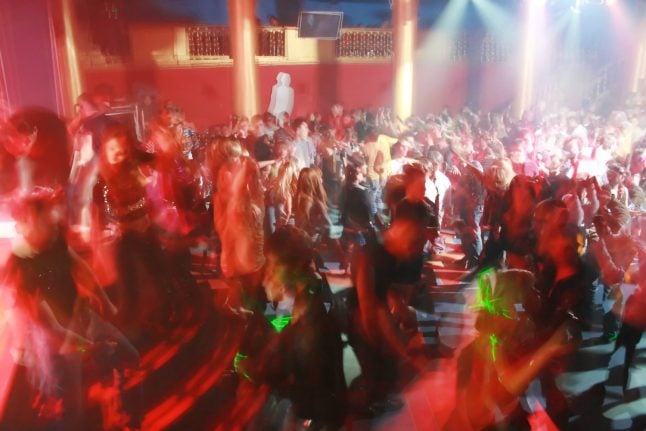People who went to the KitKat club on Saturday, September 29th have been urged to get checked out for Neisseria meningitidis, also known as meningococcus, the bacteria that can cause meningitis.
It came after a guest reported that he was suffering from the infection. German media on Thursday said that a “rush” of people have been in contact with doctors – but anyone else who attended the club is urged to speak to health professionals as a precautionary measure.
“Several people contacted the rescue services of the Neukölln Clinic and the Am Urban Clinic,” Kristina Tschenett, press spokesperson for the Vivantes clinic group, told Tagesspeigel.
“With this term, we have a red alert,” said Falko Liecke (CDU), the health city counsellor of Neukölln, pointing to the severity of the situation when it comes to meningitis.
Meningococcal meningitis is a rare but serious bacterial infection which causes the membranes which cover the brain and spinal chord to become inflamed. Common symptoms are severe headaches, high fever, chills, dizziness, stiffness of the neck, drowsiness, joint pain and feeling very ill.
Some sufferers can also develop a reddish or purple skin rash that does not turn white when you press a glass against it. This can be a sign of blood poisoning.
The infection is usually spread via fluids from the mouth and throat, for example coughing, sneezing and kissing. It can be treated with antibiotics.
Authorities in Berlin's Reinickendorf district issued a statement on Tuesday, urging anyone who was at the club to “seek immediate preventive treatment”.
Authorities said: “Please consult your general practitioner or the emergency room (ER) of a hospital immediately.”
The statement added that there was a “transmission of a bacterial meningitis (meningococcal meningitis) in the KitKatClub”. The bacteria strains A, C, Y and W135 are believed to have been possibly spread in the famous night spot.
On Facebook the club, which is famous for its wild parties where anything goes, issued a statement with details of the incident and listed symptoms.
The club said the patient attended Saturday night’s 'CarneBall Bizarre' club night. In the statement, they said staff did not have symptoms but had been offered antibiotic treatment as a precautionary measure.
The hedonistic Berlin institution is located in Köpenicker Straße, on the edge of Mitte, and is a landmark in the city’s club scene, which attracts tourists from all over the world.



 Please whitelist us to continue reading.
Please whitelist us to continue reading.
Member comments